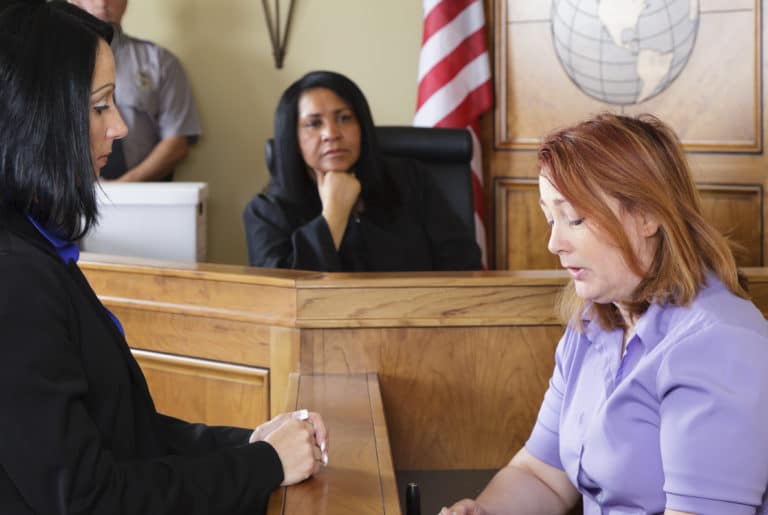The Wheels of Justice Do Turn in America…They Just Don’t Turn Quickly
The following is adapted from Unthinkable.
Murder, robbery, assault, driving while intoxicated—these are all crimes under the law. And, if you or a loved one are the victim of someone who commits one of these crimes, you have the right to seek justice through the criminal justice system.
Obviously, laws differ by state, but every written law spells out exactly what constitutes a crime as well as the penalties a wrongdoer could face. However, because of the way our justice system is set up, it can take a long time to reach a conclusion, and it may not be one that feels satisfactory.
I don’t want to dissuade you from seeking justice if you are the victim of someone who broke the law. However, I do think it’s important that you understand the criminal justice process and what’s likely to happen. That way, you can prepare yourself for the reality of the situation, which may help you avoid unnecessary frustration and heartache if things don’t go exactly as you envision.
The Most Likely Outcome
Regardless of the level of the charges being pursued, it is important for you to know that at the beginning the defense is very likely to enter a plea of not guilty. For the family, it can feel like a slap in the face to hear the accused enter that plea to something you know they did, but that’s where the defense typically starts.
They’re trying to preserve their options, foremost of which is putting themselves in the best position to negotiate a plea bargain with the prosecutor. And the prosecutor is likely to listen. Their evidence may not be as strong as they’d like it to be; even if it is, anytime you go to trial there’s always the chance you’ll lose.
What’s more, the government’s prosecution system is simply overwhelmed. If every criminal case that is filed were brought to trial, the system would collapse under the workload and defendants would go free because their cases weren’t heard in a timely manner.
The Reality of the Plea Bargain
A plea bargain is just that. The accused agrees to plead guilty to a lesser offense than they’ve been charged with—an original charge, mind you, that the family often finds insufficient already. The accused might also agree to plead guilty to the original offense, with the prosecutor agreeing to recommend a lighter sentence.
Even if they carelessly killed somebody, that can mean the accused will likely spend very little time, if any, in jail. Instead, they might pay what the court system considers a substantial fine—in the range of $1,000 or so—and agree to perform community service or submit to monitoring by a probation officer.
Depending on the circumstances and the history of the accused, some prosecutors may decide to stick with the original charges and not offer any plea bargain at all. If this is important to you and your family, then there are things you can do to actively participate as a crime victim in the criminal justice process that may help bring this about.
But more times than not, what we see happen is that the prosecutor will offer some incentive for the at-fault person to enter a plea rather than taking the criminal case to trial. That incentive may be pleading guilty to a lesser charge, or it may mean offering to propose that the judge enter a lighter sentence for a guilty plea to the original charge. Such an outcome is rarely satisfying to the family. But it is the most likely outcome of a criminal case, just the same.
Understanding the Timeframe
Along with what may feel like an insufficient penalty, you are probably also looking at a longer timeframe than you might expect. What most often takes the longest in a criminal case involving a fatality or catastrophic injury is the police or prosecutor’s investigation. In an accident involving a fatality, it can take months.
Once charges are formally filed in the criminal justice system, the accused has the right to a speedy trial under the US Constitution. The Constitution doesn’t define specifically what that means, so it varies some from state to state. Let’s say it’s 180 days; that would be typical. If the prosecutor doesn’t meet that timeline, the accused can demand the criminal charges be dropped.
One reason months can pass before a criminal case is initiated is because the prosecutor wants to be sure they have their ducks in a row before filing charges in case they are rushed to trial. But in most cases, after formal charges are actually filed, the defense waives the right to a speedy trial as a tactic. That slows the process, putting the case in a much slower docket, or list of cases. It can take up to a year before such a case is actually heard in court.
We most often see a timeframe ranging from four months to a year between the bringing of criminal charges to final resolution. That doesn’t include any jail time the accused may face or an appeal. The wheels of justice in America turn—but they don’t necessarily turn quickly.
The Realities of Restitution
When a person pleads guilty or is found guilty of a crime, the judge may order the payment of restitution as part of the punishment. Restitution requires a person convicted of a crime to compensate the victim for the actual financial losses they sustained.
In doing so, the judge will only consider financial losses or expenses that were directly caused by the crime, and you have to provide documentation of the loss to have it considered. You can request restitution for things like funeral, medical, and mental health expenses. Lost wages, travel, and any other expense incurred by the victim and immediate family members can also be considered if documentation is submitted.
In general, restitution is another facet of the criminal justice system that can sometimes leave families frustrated. A criminal court will not require the guilty person to compensate, through restitution, for what are called non-economic losses: the formal name for your grief, pain and suffering, loss of enjoyment of life, mental anguish, and other emotional harms. (However, the civil justice system can.)
Typically what you’ll see is restitution on the order of $5,000 to $15,000—much smaller amounts than the family would consider fair punishment. Generally, it’s the district attorney or prosecutor who is responsible for providing the judge with the amount of restitution owed to the crime victim based on documentation the victim provides. Make sure you talk to the prosecutor’s office about the documentation needed to support your claim for restitution.
The Realities of Sentencing
The realities of sentencing are similar to the realities of prosecution: we can’t keep everybody in jail, in part because our prisons are already overcrowded and in part because it wouldn’t be good for society. As a result, political decisions must be made as to who we’re going to put in jail and why.
At the time formal charges are initiated, unless a case involves an intentional act—driving under the influence (DUI), drug use, or fleeing the scene of an accident—the person accused of causing catastrophic injury or death is generally released immediately on bail or their own recognizance, meaning they either post some money or give their word that they’ll appear for trial. So, they don’t spend any time in jail pre-trial.
Once someone is convicted, the government’s interest may still be in alternatives to jail time. For misdemeanors with full conviction and empty prisons, the accused would still spend just a year or less behind bars, most often in a county jail, a less restrictive setting than a state prison.
Put it all together, and you’ll find that—unless we’re talking about intentional harm or DUI—in most cases involving death or catastrophic injury, there’s very little jail time ever served. That’s particularly true for first offenders.
Prepare Yourself for the Most Likely Outcome
As a general rule, families want the highest measure of justice the system can provide and a speedy resolution. But it’s not TV; cases often last a year, not an hour.
Families may consider the initial charge to fall short of the loss they’ve suffered. They may see evidence excluded from the trial. No matter how good the reasons may be for a plea bargain, they may find the outcome offensive because of how it dilutes the nature of the offense itself.
I share all of this so you are better prepared for what to expect. If you think that the case will move forward quickly, and that the person who wronged you will spend a lot of time behind bars or be forced to pay you a large sum of money after a criminal case, you may be very disappointed.
This does not mean you shouldn’t pursue legal action. However, it’s a good idea to consult with a lawyer about your particular case. That way, you’re fully prepared for the outcomes you should realistically expect.
For more advice on how to navigate the criminal justice system if you or a loved one are the victim of a crime, you can find Unthinkable on Amazon.
A founding partner of the law firm Bachus Schanker, Kyle Bachus limits his practice to representing individuals and families in catastrophic injury and wrongful death cases nationwide. For more information, visit KyleBachus.com.




